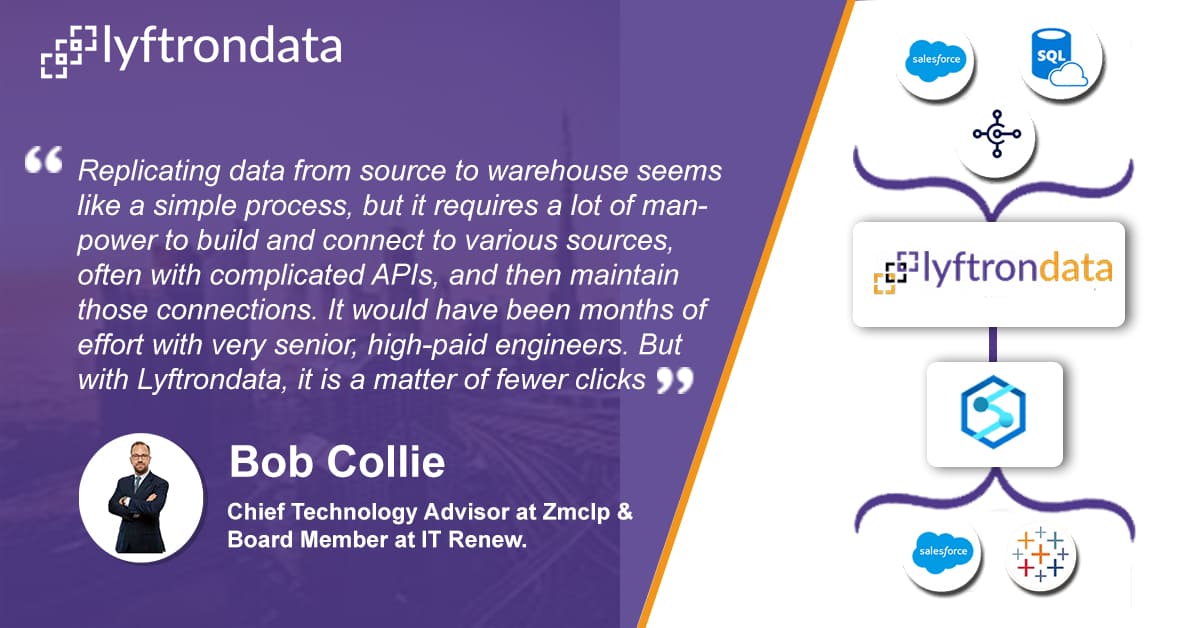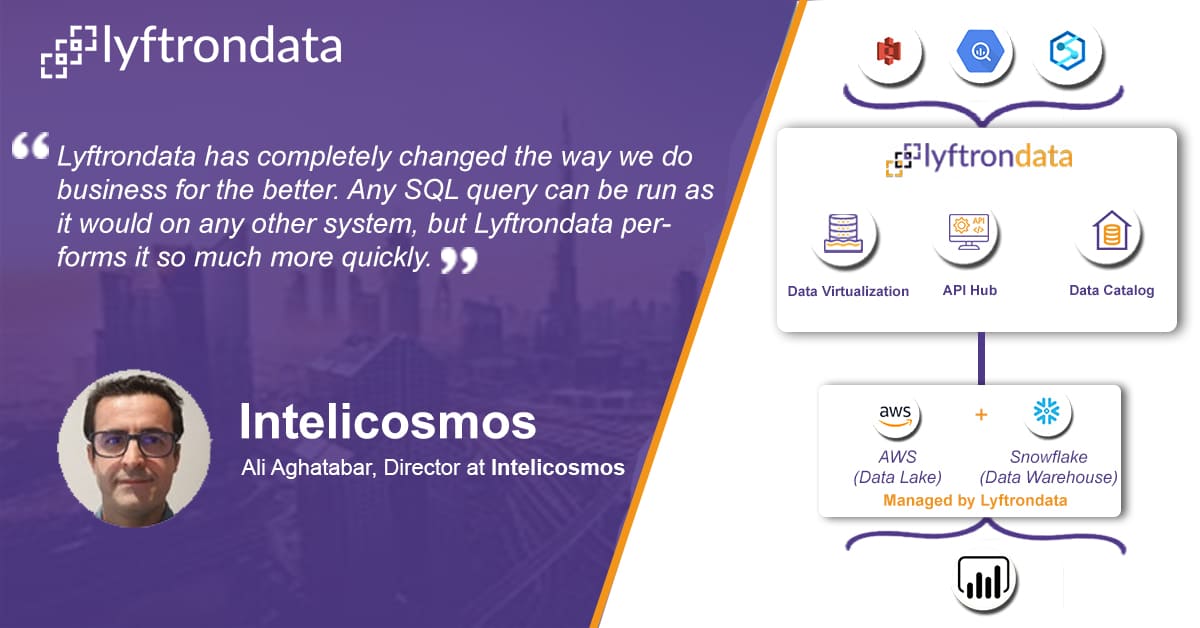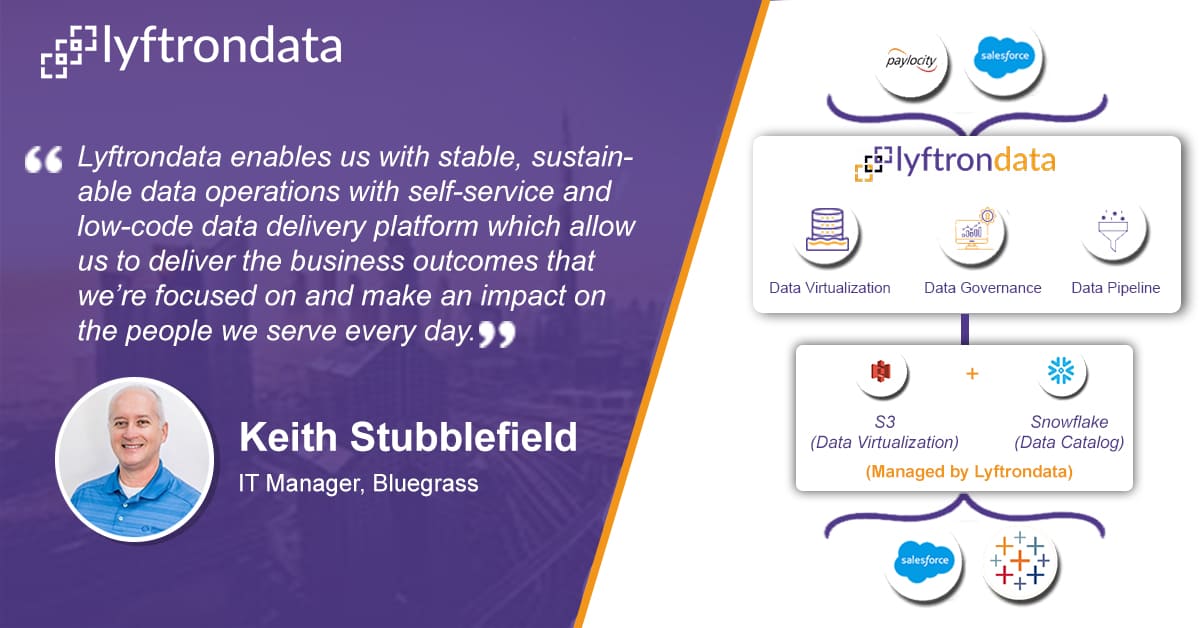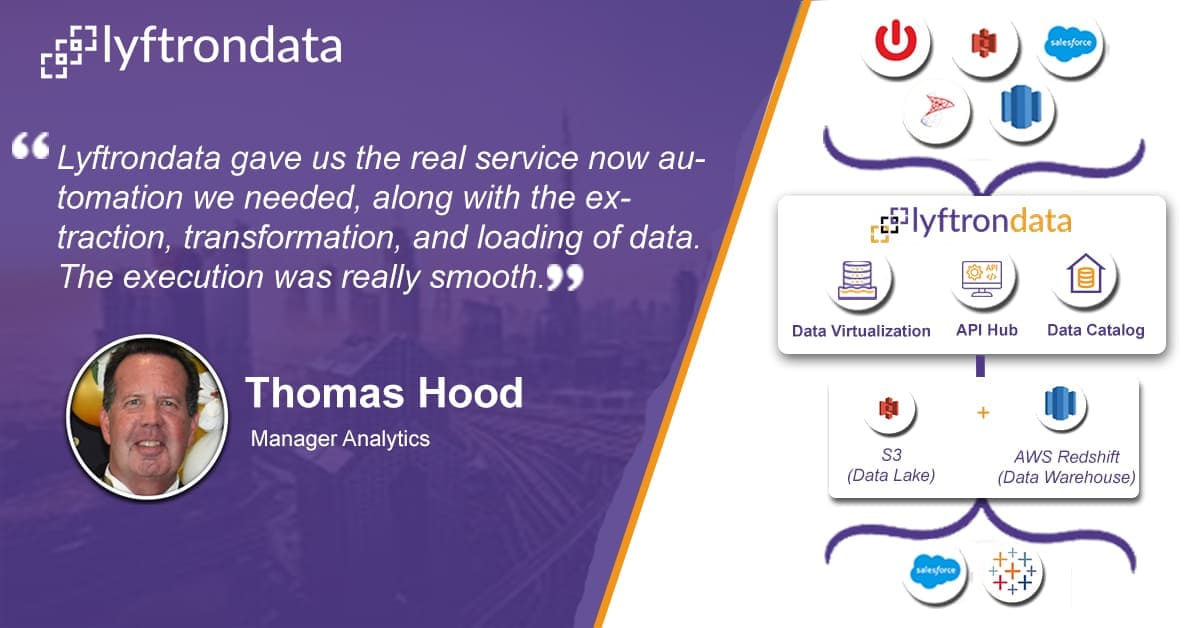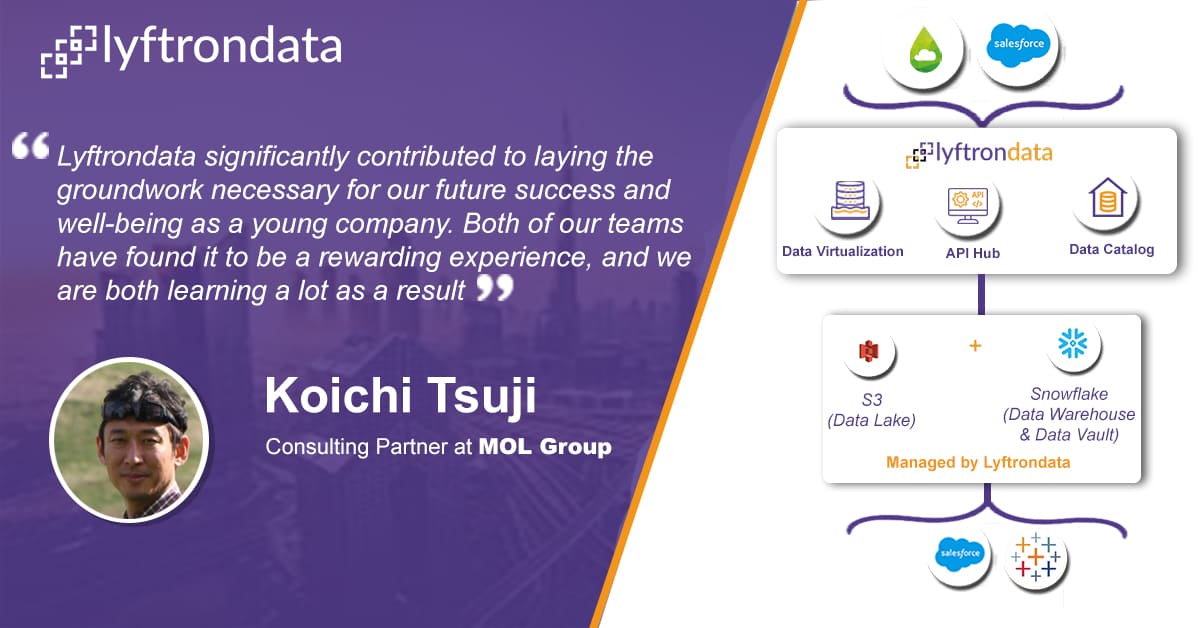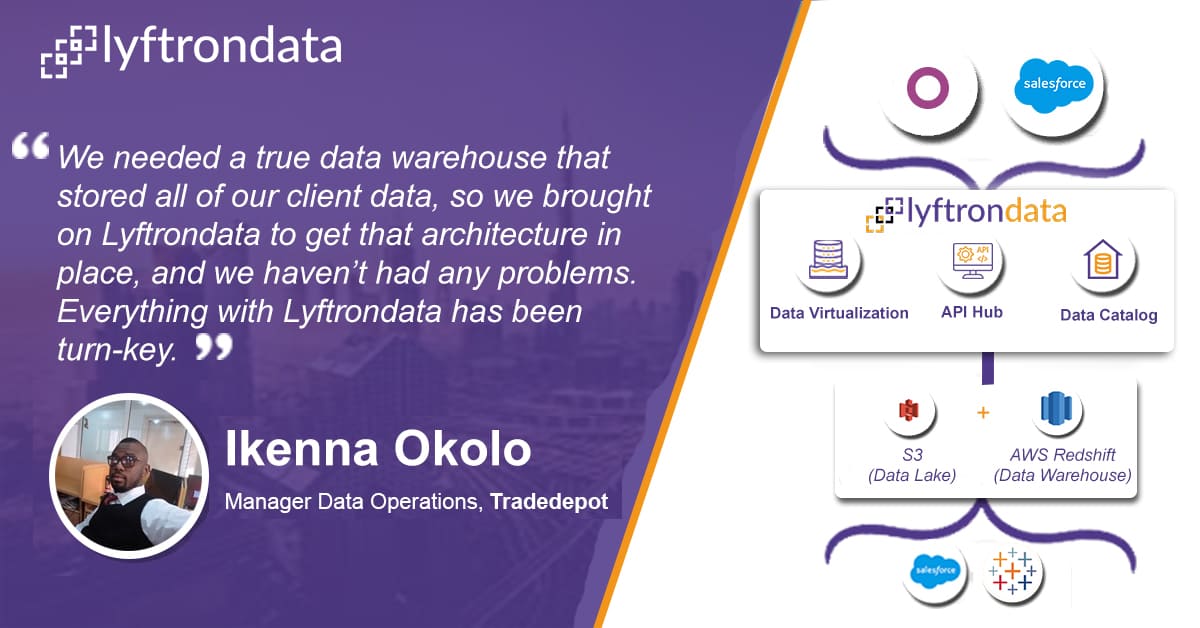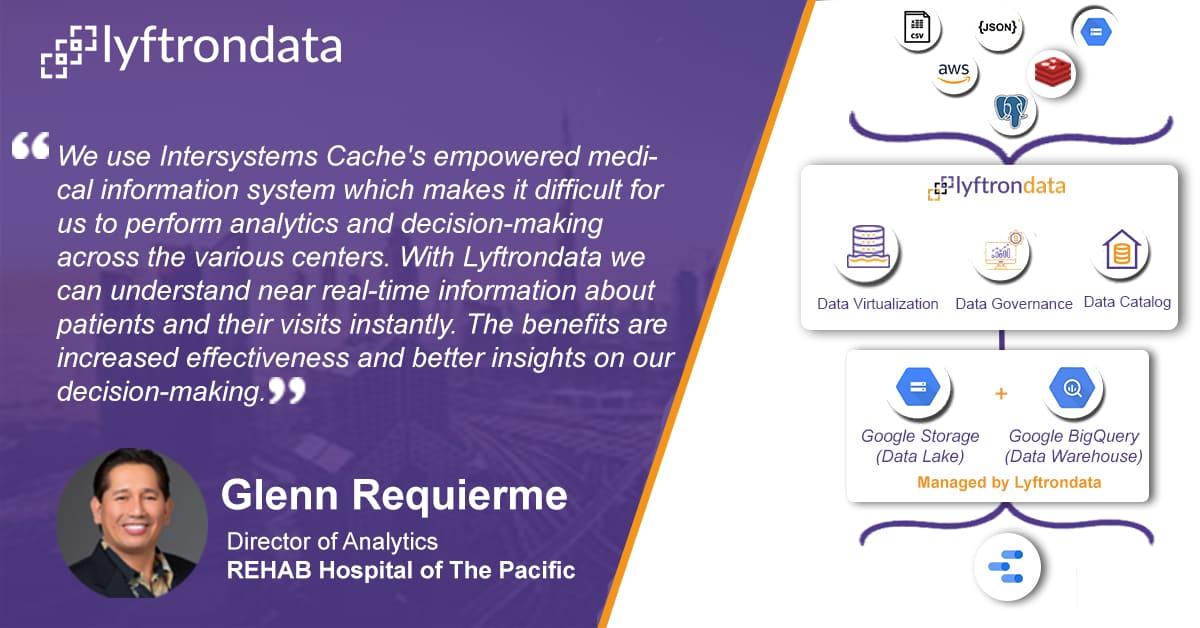200X Acceleration at
1/10th of the cost
Zero
maintenance
No credit card
required
Zero coding
infrastructure
Multi-level
security
Simplify Data Virtuality integration in
4 simple steps
Create connections
between Data Virtuality and targets.
Prepare pipeline
between Data Virtuality and targets by selecting tables in bulk.
Create a workflow
and schedule it to kickstart the migration.
Share your data
with third-party platforms over API Hub

Why choose Lyftrondata for Data Virtuality Integration?
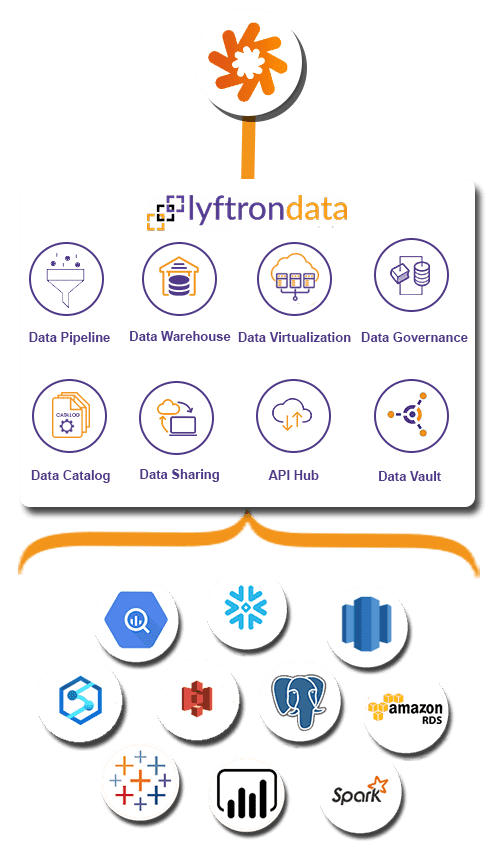

Simplicity
Build your Data Virtuality pipeline and experience unparalleled data performance with zero training.

Robust Security
Load your Data Virtuality data to targets with end-to-end encryption and security.

Accelerated ROI
Rely on the cost-effective environment to ensure your drive maximum ROI.

Customer's Metrics
Track the engagement of your customers across different channels like email, website, chat, and more.

Improved Productivity
Measure the performance of your team and highlight areas of improvement.

360-degree Customer View
Join different data touch points and deliver personalized customer experience.
Hassle-free Data Virtuality integration to the platforms of your choice
Migrate your Data Virtuality data to the leading cloud data warehouses, BI tools, databases or Machine Learning platforms without writing any code.
Hear how Lyftrondata helped accelerate the data journey of our customers
FAQs
What is Data Virtuality?
The Amazon EMR Integration enables the managed cluster platform known as Amazon Elastic MapReduce, which makes it simple to run big data frameworks like Apache Hadoop and Apache Spark on Amazon Web Services.
What are the features of Data Virtuality?
Low cost per second: You can take advantage of the low cost per the second service by using the Data Virtuality Connectors tool.
Amazon EC2 Spot integration: Data Virtuality ETL offers EC2 spot integration service.
Amazon EC2 Reserved Instance integration: Reserved instance integration with Data Virtuality Drivers tool.
Elasticity: Amazon Elastic MapReduce, formerly known as the Amazon EMR Integration tool, is a managed cluster platform that makes it easier to run big data frameworks.
What are the shortcomings of Data Virtuality?
Master node constraints: Any failure of two master nodes simultaneously is not supported by Data Virtuality Integration.
Cluster recovery issues: Cluster recovery is not possible with the Amazon EMR connector.
Availability Zone failures troubles: Clusters of Data Virtuality drivers with multiple master nodes are not resilient to Availability Zone failures.
Make smarter decisions and grow your sales with Lyftrondata Data Virtuality integration





